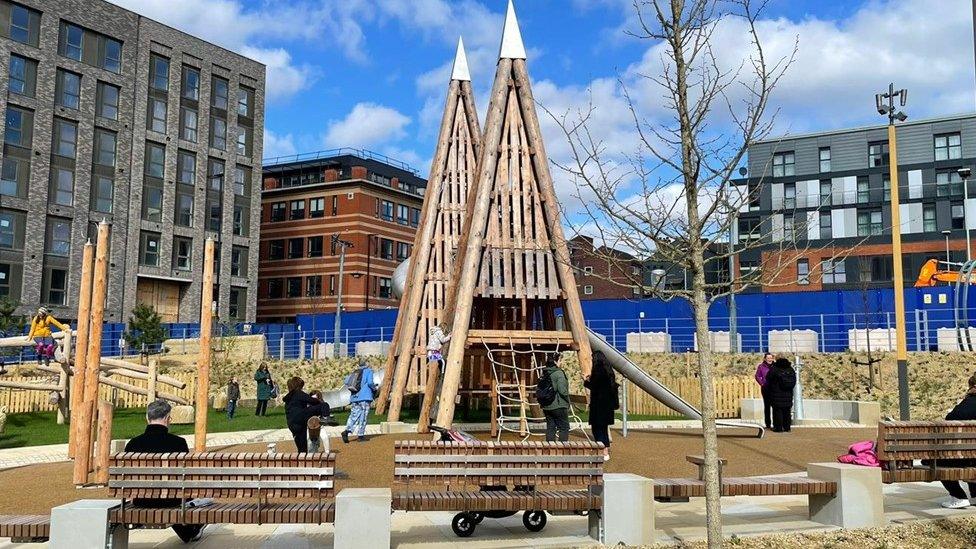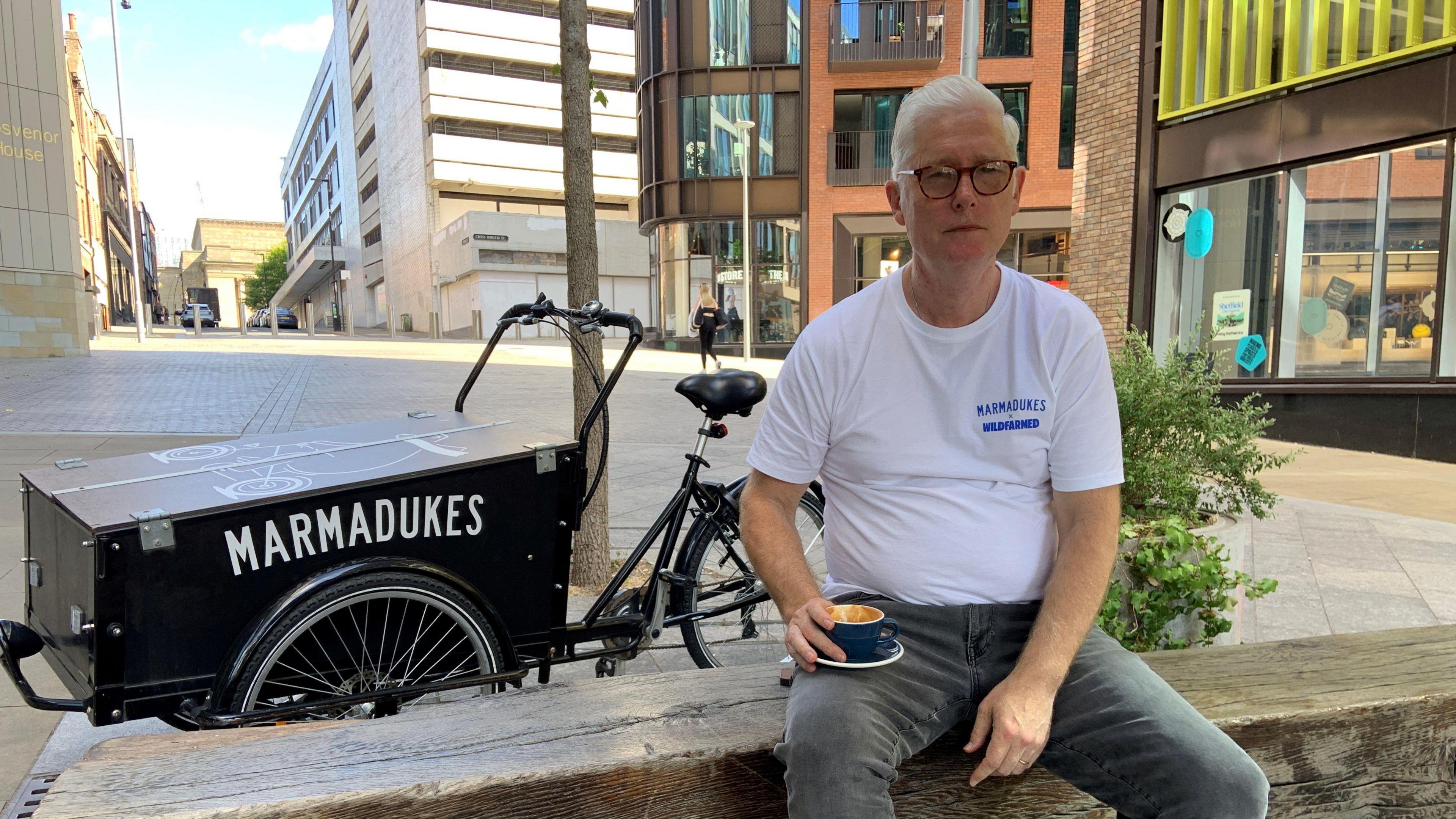'Sheffield should set itself apart from other cities'
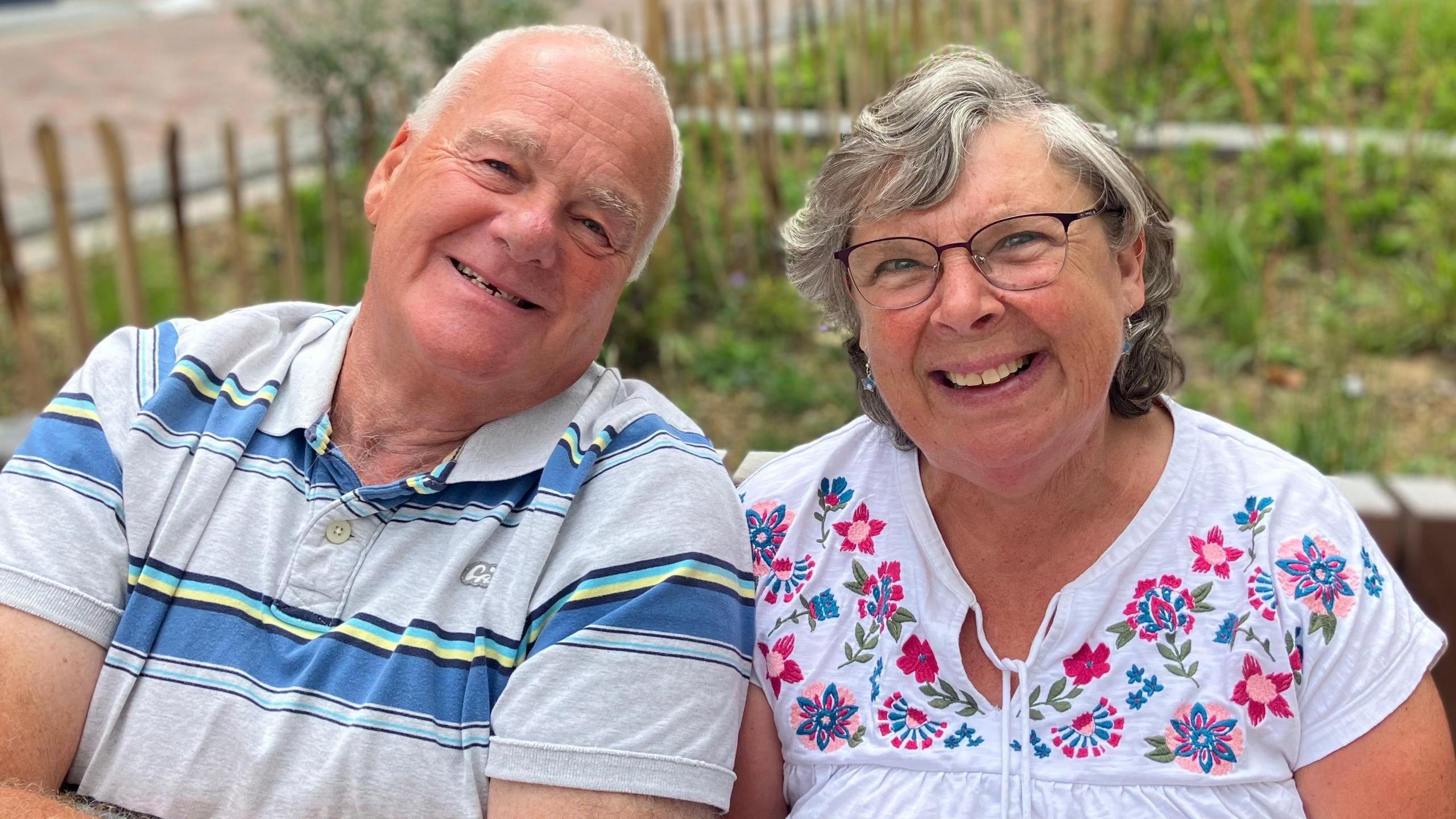
Graham and Julie Fidler have witnessed plenty of change in Sheffield city centre
- Published
Like many towns and cities across Britain, Sheffield is trying to recover from the body blow of the coronavirus pandemic while also battling against the ever-growing influence of online shopping.
In a bid to revive its fortunes, the council has invested £470m in the city centre and taken steps to transform its offering, but opinion remains divided on its success so far.
According to a national think tank, Sheffield lags behind its peers, with the highest number of empty shops, lowest visitor spend and poorest performing economy of all large city centres in the UK outside London.
Despite a multimillion-pound redevelopment programme, the Centre for Cities says the likes of Leeds, Manchester, Birmingham and Nottingham all fare better than the Steel City, with approximately one in eight shop units vacant.
But local business leaders have hit back at the bleak findings, insisting the city is enjoying a "renaissance" and has a bright future as a visitor destination.
Diane Jarvis, head of business operations at Sheffield BID, said more recent data showed the city was performing well nationally and the council's redevelopment programme was "coming to fruition".
To find out how people feel, we headed to the new-look city centre to hear from those on the shop floor.
Just off Sheffield's main shopping street lies Chapel Walk, a winding thoroughfare connecting Fargate with Tudor Square and the city's theatres.
Said to have once been a bustling shopping street in its own right, many feel it is now a shadow of its former self.
While there are green shoots of recovery, its regeneration has yet to blossom.
Several units on the street remain vacant despite Sheffield City Council's claim of a "transformation" that is "moving at pace" - and the incentive of grants of up to £10,000 for new businesses.
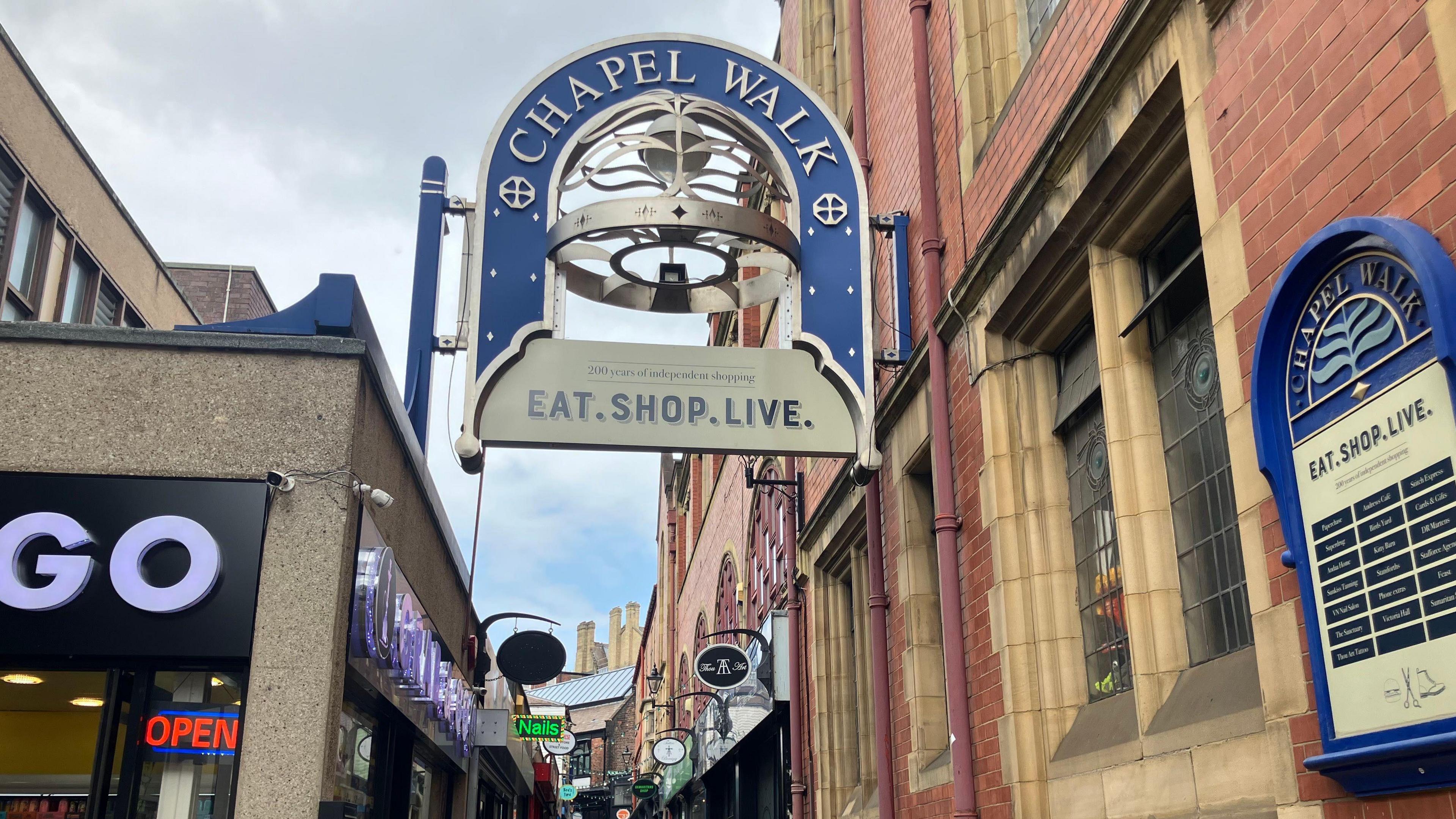
Several shop units remain empty on Chapel Walk
Rosie May has run a feminist and queer community bookshop on Chapel Walk with her friend Sarah Scales since 2022.
She assesses the overall situation as "fair to middling", adding: "There are too many empty units both on Fargate and Chapel Walk.
"We just need some really creative independent businesses to be able to take the risk or to be supported to take the risk to take on tenancies, because Chapel Walk did used to be super cool and we really believe it could be again.
"We're surrounded by empty units and we see other cities not having this situation. It's frustrating."
The closure of Debenhams and John Lewis in 2021 was seen by many as a significant blow to Sheffield city centre's retail offering.
However, according to Ms Jarvis, the days of city centres propped up by big department stores are gone.
"Sheffield is obviously reinventing itself as a visitor destination, we have got a very, very strong food and drink scene which contributes up to 40% of total sales in the city centre.
"That reflects a national trend that vibrant high streets are being driven by hospitality."
While the city's newest food hall, Cambridge Street Collective, is steadily busy when the BBC visits at lunchtime on a sunny Thursday, another closed earlier this month, just two months after rebranding.
The council said Sheffield welcomed 17.4m visitors in 2024, an increase of 4.8% from 2023 and said occupancy rates at its flagship Heart of the City regeneration project stood at 75%.
Mohammed Mahroof, chair of the economic development, skills and culture committee at Sheffield City Council, said tourism "continues to be a powerful driver of Sheffield's economy, supporting thousands of jobs and bringing in over £1.85 billion in 2024 alone".
"We're committed to building on this momentum, ensuring that tourism continues to benefit communities across the city and plays a central role in Sheffield's growth."
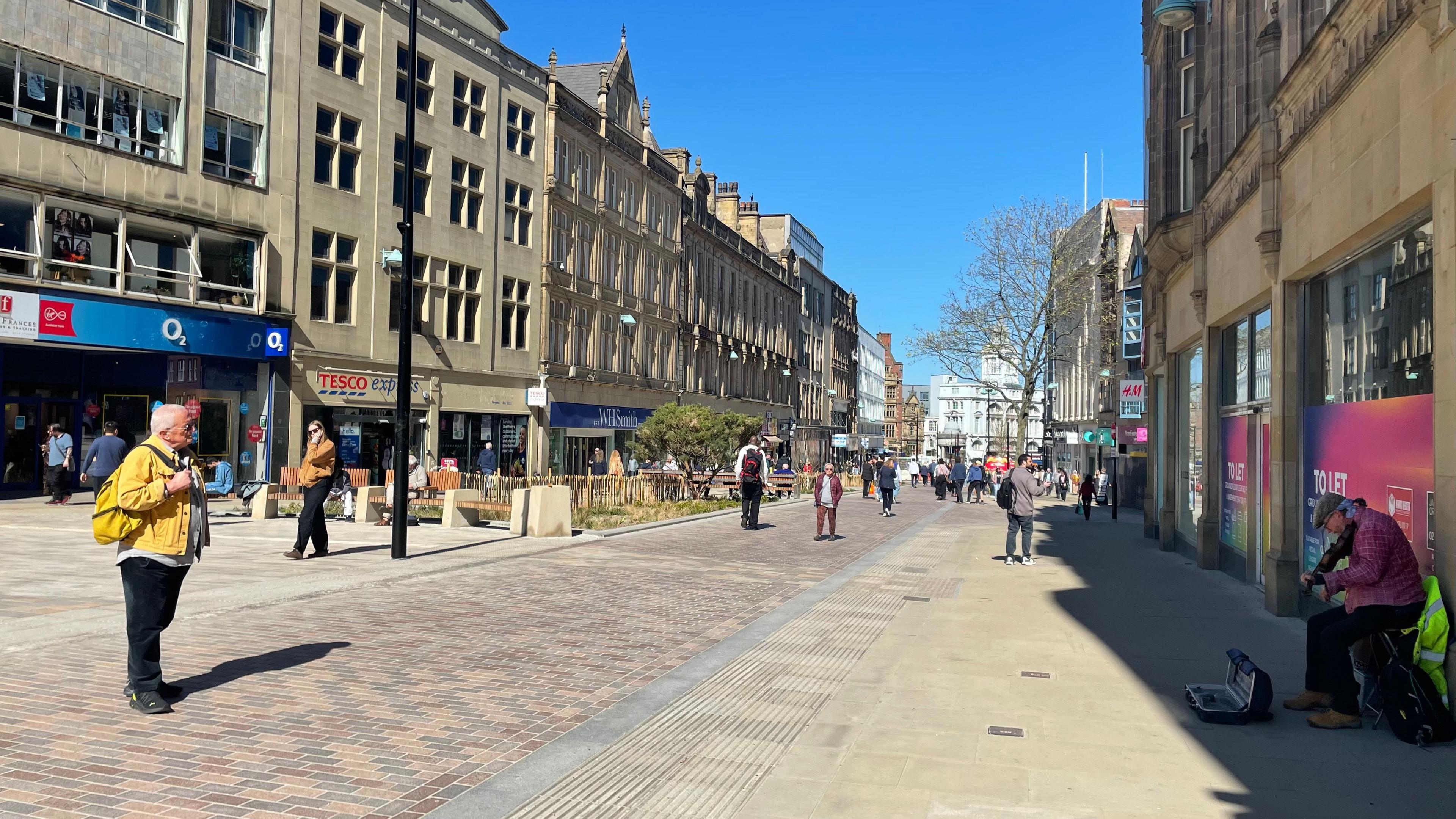
Fargate has undergone a transformation as part of Sheffield's regeneration
Ms May agrees a food and drink offering is a big part of the city centre's future, but insists retail "is not dead".
"Sheffield is really good at creative industries, so we need small independent businesses, people who know and love their stuff.
"That is something Sheffield could do that would set itself apart."
Ms Jarvis says there is interest in vacant city centre units and "confidence" among letting agents they will be filled, but admits: "It is not going to happen overnight."
Earlier this month, the council said it would announce more "exciting openings" in the coming weeks and months.
Further down Chapel Walk, Ryan Wegg describes business at the handmade gift shop where he works as "hit and miss" - even now scaffolding has been removed from the street.
"We get a lot of people who ask how long we have been here - we have been here for more than 10 years."
In his view, the street should be better signposted to shoppers on Fargate. He also highlights a conundrum facing the city centre's regeneration programme.
"People say they want something to be done, but when they were doing it and there was a lot of the building work on Fargate people did say it had put them off coming to shop."
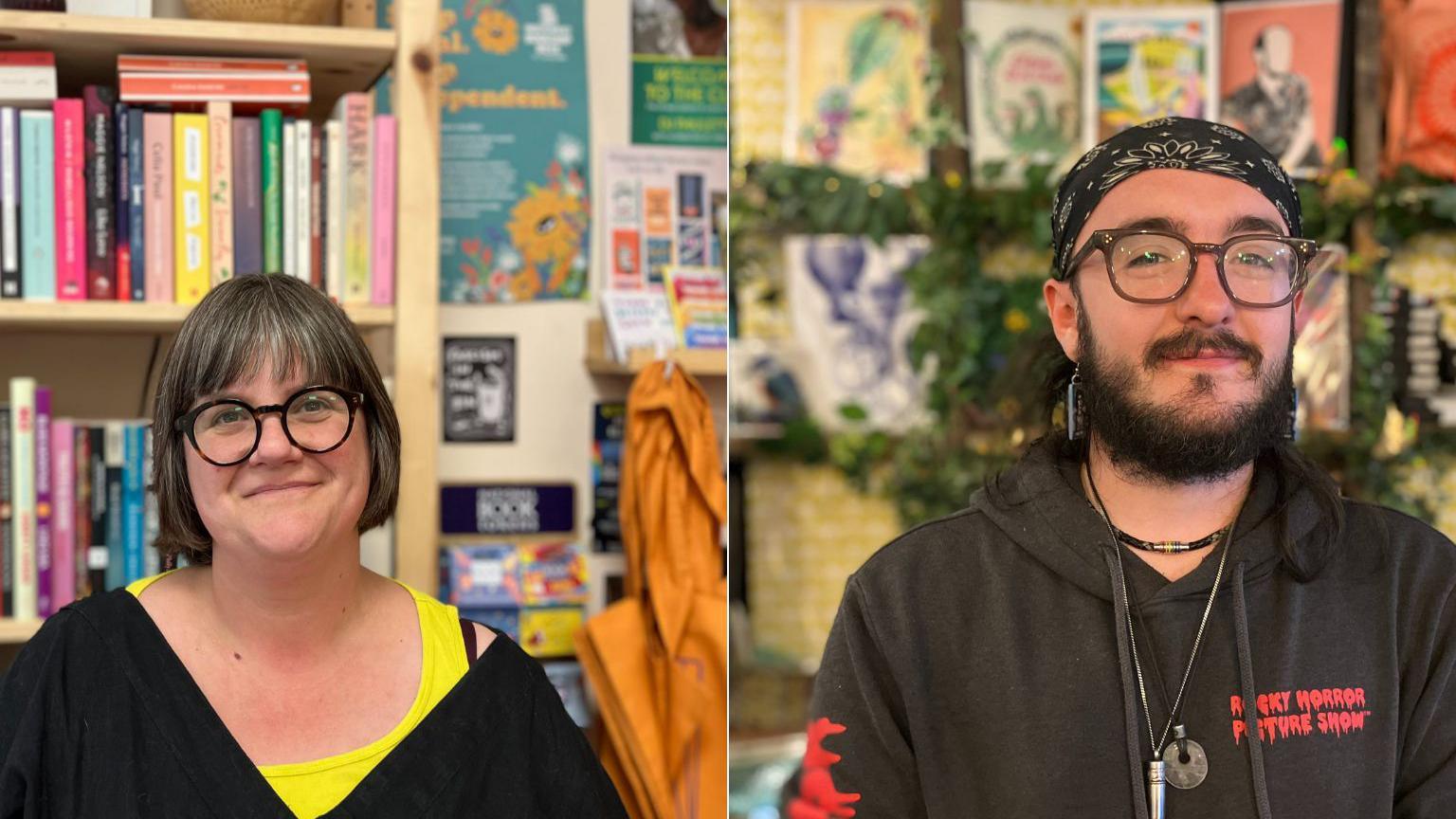
Rosie May and Ryan Wegg were lukewarm about the current trading situation
To illustrate Mr Wegg's point, the next person the BBC speaks to, retired engineer Graham Fidler, assumes Chapel Walk, which he remembers as "a hive of activity", has closed altogether.
Sat on a newly installed bench on Fargate, Mr Fidler smiles as he recalls visiting the Crazy Daisy discotheque on High Street during the heyday of the city centre before the birth of Meadowhall, which according to the Centre for Cities attracts around double the spend of the city centre.
Mr Fidler lives in Rotherham but is in town with his wife of 43 years, Julie, to meet a friend to visit one or more of the many pubs he enthusiastically lists as city centre highlights.
Gazing out at the new-look shopping street, now free of construction equipment, he says the city centre is "improving", but adds: "It's not like it used to be."
The 66-year-old praises new additions to the city centre, like Pound's Park, but moments after being approached for money says homelessness remains a problem.
"That spoils it. We have been here in the evening and it's just horrible."
Mrs Fidler is steadfast in her assessment of the city centre's regeneration: "We just need more shops - there's plenty of hotels, new flats for students. They seem to have taken over quite a lot.
"It's changed a lot. Mind you, it's the same for any town now that there's no department stores."
Mr Fidler bemoans the fortunes of Sheffield in comparison to its West Yorkshire neighbour.
"It's not as trendy as Leeds. It's a poor relation in a way."
While many Sheffielders draw similar comparisons with the likes of Leeds and Manchester, Ms Jarvis insists they are futile.
"If you try and compare it to larger cities, of course it will pale in comparison.
"Sheffield will find its own path not trying to be a small, me-too version of another city.
"It's undergone quite a renaissance, certainly since Covid, it's all going in the right direction."
Listen to highlights from South Yorkshire on BBC Sounds, catch up with the latest episode of Look North.
Get in touch
Tell us which stories we should cover in Yorkshire
Related topics
- Published27 May 2023
